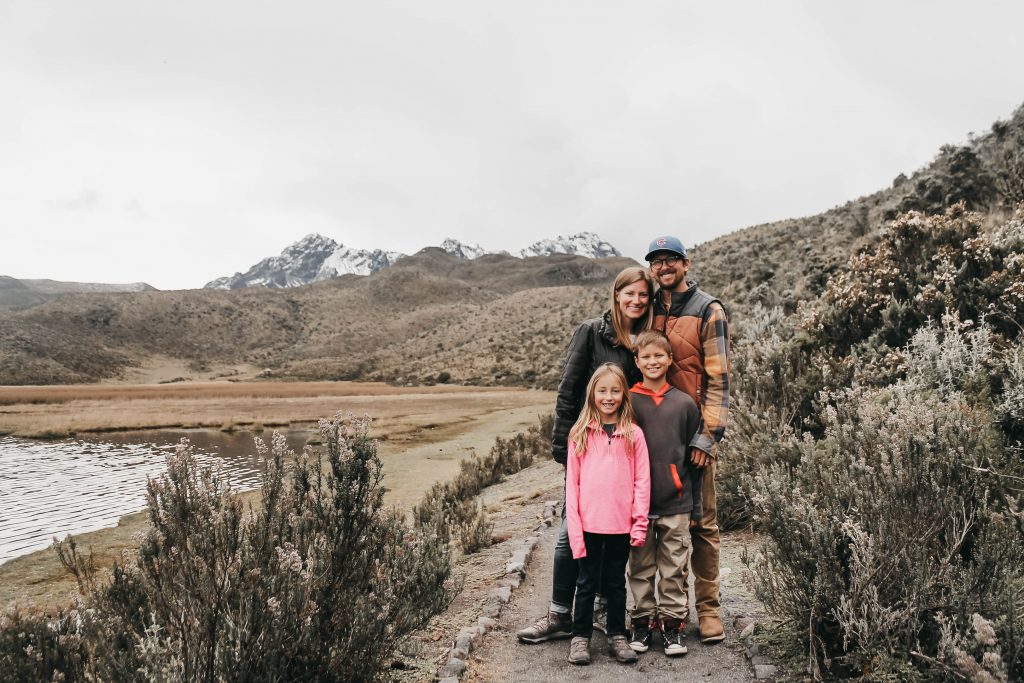As many of you may know, two weeks ago participants from ministries and churches in Mexico, Ecuador, and the United States gathered together in a cold, damp, Quito church to begin a course on intrafamiliar violence and human trafficking. Participants came from a variety of disciplines: chaplains, counselors, pastors, teachers, and youth workers. They represented a variety of contexts, from rural Amazonian towns to urban centers.
Though we were from various contexts and backgrounds the reality is the same. Intrafamiliar violence and human trafficking continues to be one of the most common forms of violence in the world…and yet it is not discussed openly or frequently enough in our churches, schools, businesses or homes. For example, this past year over 6,000 individuals were trafficked from the open-air markets in Ecuador for labor or sex slavery. The United States remains one of the leading consumers of trafficked persons and the sex industry. It is well reported that the political party conventions, the Super Bowl weekend, and Promise Keepers convention tend to be the events which produce the highest levels of trafficking within the United States, with a 30% increase per event. Due to it’s nefarious and underground nature, sex trafficking is difficult to estimate, with the most common numbers between 20.9 million or 45 million individuals worldwide trapped in sex slavery, making over $150 billion USD last year. In the USA 1 in 3 women and 1 in 5 men have suffered from abuse; overwhelming the perpetrator being a known individual. Levels within the church are as equal or higher than the surrounding society. With these kinds of statistics it can feel like an impossible task to confront. Isolation, helplessness and burnout are common experiences for those ministering with survivors and advocating for prevention and justice.
So, we gathered in an effort to continue to learn, share, and encourage one another in the task. Throughout the week we lived and ate together. At each gathering we worked on best practices, resources, and testimonies in the areas of prevention, intervention and healing.
Some of the highlights of the trip:
- We were able to hold a forum with pastors and counselors who work in a wholistic fashion with men and women leaving the sex industry or who are in abuse and addiction recovery (the two often go hand-in-hand).
- We were able to visit a Covenant school in a rural village, sharing with the students in age appropriate ways about the realities of abuse, ways to protect themselves and others, as well as reporting. A group also met with teachers on developing plans dealing with prevention, identifying, and reporting. Finally, we met with over 80 parents discussing the realities and affects of abuse on children.
- Examining human trafficking and abuse within Scripture, particularly the stories of Ruth and Tamar.
- We were able to visit a foundation founded through the Rosedale Mennonite mission in a coastal city. The home provides shelter and transitionary services for children removed from homes due to violence and abuse. The shelter has seen an increase of children yet a decrease in funding since the earthquake.
- A morning at the beach to rest, discuss, and be reminded of the beauty of the world and the many individuals working, praying, and dreaming of a world safe and secure for all people.
The week was not without its challenges and joys. Challenges: a participant dislocating her knee in an extremely remote village, flight delays and cancellations, a day without running water on the sweltering coast, staying engaged after a week of discussion and testimony of very difficult subjects. Joys: two participants’ first air flight, a morning at the beach, folkloric concert, connecting with people who confront or have survived the realities of violence and trafficking in our societies.
Our hope is to continue to connect with one another, sharing resources, concerns and successes. Here in Ecuador we plan on forming intervention and trauma resource teams for the various schools administered by the Covenant Church of Ecuador. We are also in the preliminary talks of preparing and training local churches to be safe havens for women who have gone through the transitional homes and are preparing to reintegrate into broader society. This is a crucial, yet missing step in the healing process that several directors of shelters have commented on. Many churches are not equipped socially or emotionally to provide assistance and accompaniment to women survivors and their children as they begin to reconstruct their lives.
It is not just these 30 participants, however, who need to be strengthened and encouraged. Each person and community has the opportunity to break silence and confront the issues within their church and society: holding conversations and studies on masculinity, prevention of violence, or human trafficking; creating safe spaces and times of lament, grief, and testimony of survival for victims; becoming involved in local shelters or advocacy groups. There are a myriad of ways to stay connected. Below are some options, the first becoming informed.
For those leaders in a faith community the following resource from Mending the Soul is adaptable to various contexts and languages:
Another way is to continue to help fund learning and resource sharing opportunities at an international level through the Center for World Christian Studies Global Studies Fund. Thank you to those who have already given and made this event a possibility.
Support one of the following shelters in Ecuador:
Fundación Shekinah – Manta (in the “Use my gift for” section write Sheryl Hostetler Fundación Shekinah)
http://rosedalemennonitemissions.org/w2/getInvolved/donate.html
Casa Adalia – Quito
Fundación Dunamis – Quito



Leave a Reply